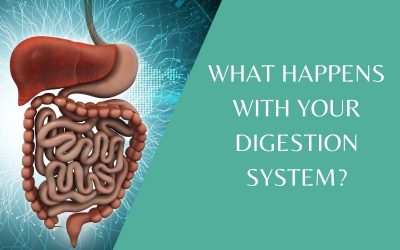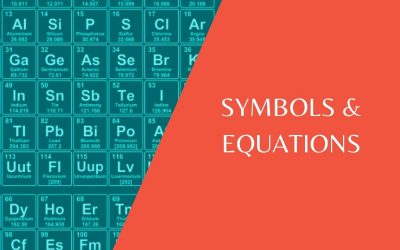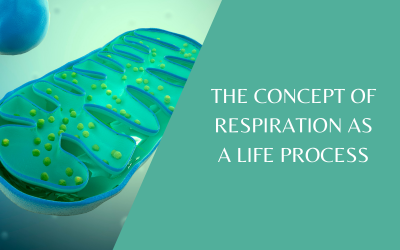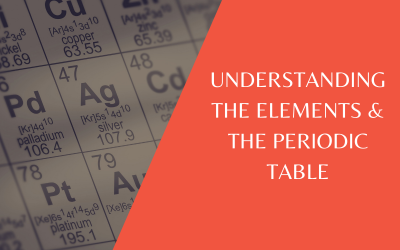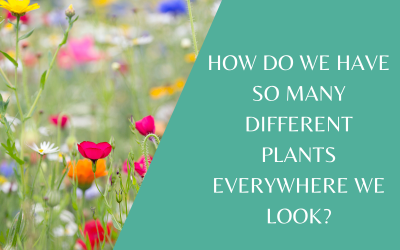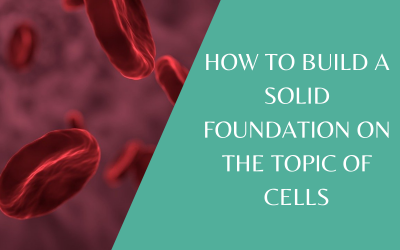How to complete your Science homework to a high standard
Are you a procrastinator when it comes to homework? Completing science homework effectively requires a combination of good study habits and a systematic approach. Remember that your teacher is there to help as well, so always ask if you are unclear on the task set....
KS3 Physics equations you need to learn
In KS3 (Key Stage 3) physics, students typically cover a range of basic physics concepts and equations. These equations are the foundations for your GCSE Physics understanding. Here are some of the key equations you may encounter in KS3 Physics and these will...
Essential facts you need to know about Elements & Compounds
Do you know your Elements from your Compounds? Can you name examples of each? Are you able to write the chemical symbols for common examples? Elements are pure substances consisting of only one type of atom. They cannot be broken down into simpler substances by...
Five things you need to know about Breathing & Respiration
Here we look at five questions Science Teachers are regularly asked about Breathing and Respiration. Do you understand the process of breathing? Can you explain the function of the Alveoli? Read on to find out more: What happens during Breathing? Breathing...
‘Top Teacher Tips’ to enhance your learning
Have you got end of year assessments coming up? Do you sometimes need a little reminder of how to maximise your learning and understand of all the key concepts? Here are five tips for students from a teacher to guide you: ✅ Take responsibility for your...
Forces – How to identify them around you
Can you identify the different forces acting around you? Are you able to predict how they may change with speed and different conditions? Do you know your balanced and unbalanced forces and how they can be represented? Read on to find out more about Forces, Newtons...
Separating Mixtures – Important points to remember
In Key Stage 3 Science, there are several methods that can be used to separate mixtures. The choice of method depends on the type of mixture and the properties of the substances. Here are the methods for separating mixtures we think you should know: Filtration: This...
Functions of the Human Skeleton – What you need to know
Do you know how your body works? Do you have a good understanding of how you are able to walk, run and pick objects up? The human body is very clever and the skeleton plays a vital role in our movement. The human skeleton has several important functions that...
How can our online resources help your exam results?
Do you know where to start when it comes to preparing for upcoming assessments or the completion of homework? Are you aware of ALL the topics that need to be covered in KS3 Science (Years 7-9)? Would you like to know how our videos and resources can help? ...
Space – what you need to know about gravity, length of days and seasons
What do you learn about Space in KS3 (Key Stage Three)? Do you understand the role gravity has in space? Can you explain how our planet is linked to the length of a day? Do you know why when it is winter in the UK; Australia is usually experiencing a lovely warm...
Has a chemical reaction taken place? How do I know?
How do you know when a chemical reaction is taking place? Are there different types of reactions? What is displacement? Can you predict and explain what will happen during a displacement reaction? Chemical reactions form the basis of many areas of chemistry and...
Genetics & Evolution – The key areas you need to know about
Do you understand inheritance and evolution? Do you think you get it and then start looking at the information and it just confuses you? Do you know the difference between a gene and a chromosome? Here we will cover the key areas we think you need to have learnt to be...
Three reasons you should have a revision plan
Have you been told you will be having a test soon? Do you have end of topic tests approaching? Are you totally baffled when it comes to revision and where to even start? In this blog, we are taking a look at how a revision plan can help you be fully prepared...
The main points you need to know about magnetism
Does Magnetism baffle you? Are you confused when it comes to drawing the magnetic field around a magnet? Was it a topic you just didn't get the hang of the first time around, or do you just need a little refresh on where to start for revision? What are the key points...
What to ask your science teacher when they say there will be a Chemistry test
Do you ever get the feeling of dread when your teacher says “Right your homework is to revise for a test next week”? Do you know where to start or do you just stare at your exercise book hoping you will just absorb all the information on the page? Does your teacher...
What are the processes in digestion? What exactly happens?
Do you know all the processes in digestion? Can you name all the organs involved? Can you explain the difference between Protease and Amylase? We are here to help you answer these questions and make understanding digestion straightforward. Digestion is covered...
How will our new KS3 Physics Resources improve your results?
What is In My Element? What are the benefits of our Physics resources? Is it just another resource? All these are valid questions that we would ask if we were researching new resource - there are many available on the internet. As we are launching these videos we...
Main points to remember for circuits and equations
Do your electrical circuits get all in a muddle? Do you draw a lamp when you mean to draw a battery? Can you work out the current and resistance from circuit diagrams and practicals if you're asked to? Have a read of this blog and we take a look at the three key areas...
Key points to remember with chemical symbols and equations
Do you panic at the thought of chemistry equations? Is it hard to remember which symbols to use and when to add numbers? Is it all a bit of a balancing act? Here we will look at the key things to remember, mistakes to avoid and also show example equations we think...
Grasping the concept of respiration as a life process
Can you explain what Respiration is? Do you know the difference between aerobic and anaerobic respiration? Do you get baffled by the word equations for respiration? Respiration features in both KS3 and KS4 Biology lessons and helps you understand many other processes...
Our Top Tips for Studying Science for Years 7, 8 & 9 (KS3)
Have you just started year 7? Feeling a little overwhelmed with all the new science terminology being used? Are you starting your GCSEs and think you have forgotten everything you were ever taught in science in KS3? We are here to help and in this blog, we take a look...
Speed – Units, Equations and Graphs You Need to Understand
Can you calculate the speed of an object? Do you know what a distance-time graph is? Can you confidently rearrange one of the most commonly used physics equations? We will help you understand the physics topic of speed and give you some examples of scenarios to help...
How different is Science in Secondary School compared to Primary?
How different is Science in secondary school compared to Primary?Do you get to do more practicals?Will I get to use a bunsen burner?Can we set things on fire? Here's what you can expect in secondary science if you are starting in Year 7 in September. What...
How do Food Chains & Food Webs Work?
How important are plants? Do you know your consumers from your producers and your predators from your prey? Can you describe food chains from a food web of an ecosystem? Here we take a look at the different roles organisms have within an...
How to revise effectively and get better results
Are you more of a reader or a writer when it comes to revision? Do you know the best way to revise? What would you recommend if someone asked you the best way to revise? Over the years I have tried, and recommended, many revision methods myself and for my...
How is electricity generated? What you need to know
Do you know how Electricity is generated and transferred to our homes? Have you ever been moaned at for wasting electricity? Do you know how to calculate how much it costs to use certain appliances in the home? We take a look at answering these questions and...
What’s the difference between Elements, Compounds and Mixtures?
Do you know the difference between Elements, Compounds and Mixtures? How are the atoms arranged in elements and compounds? Do you know how to use the Periodic Table? Can you recognise and name any symbols from the Periodic Table? The Periodic Table is something...
Plants – Photosynthesis, Adaptation and Reproduction
What is Photosynthesis?Do you know your Chloroplasts from your Cytoplasm?How do we have so many different plants everywhere we look? In KS3 and KS4 Science, you learn about Plants and their structure, adaptations and reproduction. The topic of plants is one you need...
Help, I need to catch up – where should I look?
Where do you find help if you don't know the answer? When your teacher has asked you to do some research for your homework, do you know where to start? If you have missed work due to the lockdown which websites will help you catch up and understand tricky concepts?...
What is the difference between Energy Stores and Energy Transfers?
Can you explain the difference between an energy store and an energy transfer? Do you always get in a muddle when answering questions in class on energy? Would you like to get the energy topic nailed before you start your GCSEs? This blog covers the key ideas we feel...
Why do we need In My Element?
What is In My Element? Will it actually benefit my child or is it just another resource someone is trying to make some money from? All of these are valid questions we would ask if we were considering paying for a new resource when there are many available on the...
How to explain states of matter, particle theory & changes of state?
When you start learning Chemistry at KS3 the first topic you will cover is Matter. It is vital you know about matter, how matter changes and what causes these changes. Here we look at three areas we think are essential to understanding this topic and give you our tips...
Important key points in KS3 Biology Cells Topic
Do you know the difference between an Animal cell and a Plant cell? Can you tell your blood cells from your nerve cells? The cells topic is one of the foundation topics for Biology that is revisited many times and you will gradually learn in more depth. It is...
Not another test? Learn how to revise and get better results
Have you ever been shown how to revise for a test? Are you often set homework to revise for a test and been a little confused about what to do? Here we are going to share some hints and tips, alongside a simple revision method to make preparing for KS3 science tests...
How to improve your KS3 Physics results
Do you dread your Physics homework? Are there Physics lessons where you haven’t understood a word of what the teacher has said? Would you like to feel more confident in your Physics lessons? Here we share 3 tips that will help you build your confidence and...
How to improve your KS3 Chemistry results
Do you find KS3 Chemistry hard? Are there some topics that just don’t make sense to you? Do understand the use of formulae and particle diagrams? Here we share three simple ways to help improve your learning in KS3 Chemistry. 1.🧪 Make sure you know the...
How to improve your KS3 Biology results
Finding KS3 Biology hard? Are there some topics you just can’t get your head around? Do you know and use all the relevant science keywords for each topic? Here we share three simple ways to help enhance your understanding of each Biology topic in KS3. 🧬...
How to Gain Marks in a Tricky Science Question
Need help with how to answer that tricky KS3 Science question and gain maximum marks? Science tests can be scary. Do you write lots but never get all the marks? Did you know that it's harder to get all the marks on longer questions? Read on to learn how to aim for...
















